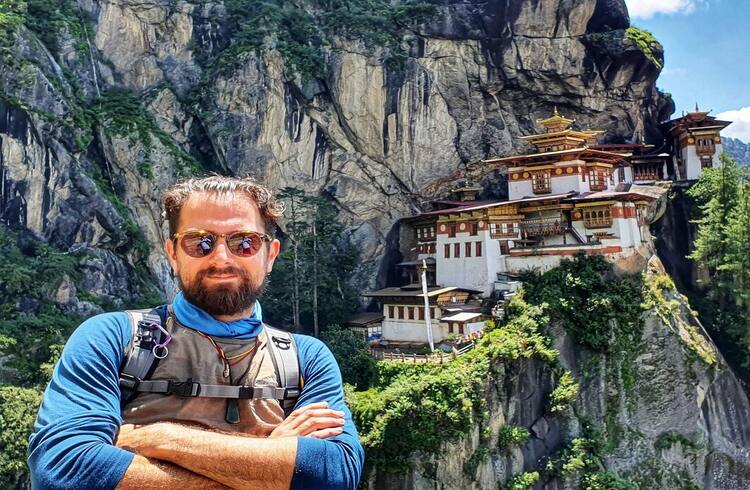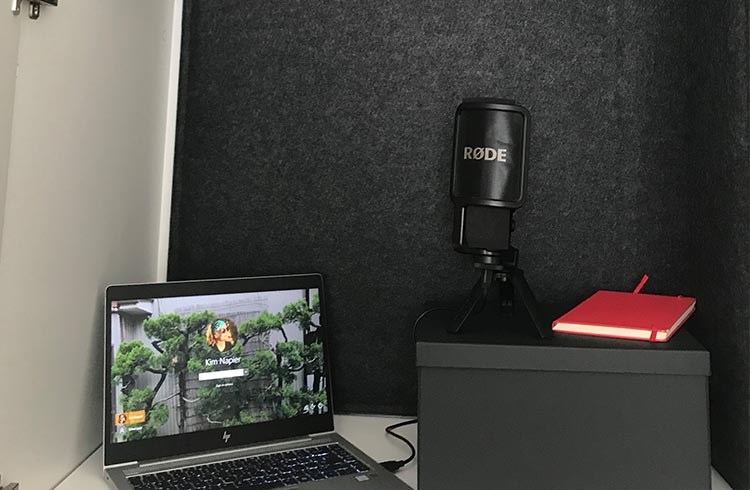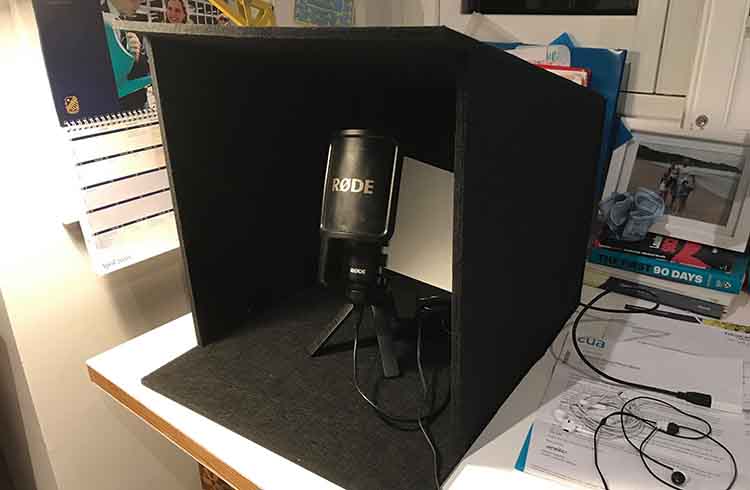In this episode, how the travel sector will recover in the aftermath of coronavirus (COVID-19), the animals venturing into towns and the tourism commercial inspiring a country to dream.
 Photo © Zoran Pejović
Photo © Zoran Pejović
Listen Now
The World Nomads Podcast: COVID-19 Travel News
As governments around the globe impose lockdowns and people self-isolate, coronavirus (COVID-19) has hit the travel industry hard. The World Nomads Travel Podcast has suspended its regular destination episodes and, in their place, offering a daily round-up of the major coronavirus-related travel headlines.
What’s in the episode
01:12 Headlines
02:30 Spring break
03:20 Kim’s COVID trick
05:20 The segment most affected by travel bans
07:37 Zoran’s hopes for Croatia
10:07 The Portuguese commercial
Quotes from the episode
"How the world will look like if we stop traveling? They'd just kind of erect new borders, and it's going to be interesting how we're going to break those borders down, psychological borders. And I really hope for the sake of the world that we continue traveling soon again." - Zoran
Who is in the episode
Zoran Pejović is a hotelier, entrepreneur, public speaker, opinion writer, and world traveler, currently based in Croatia. His hospitality career has spanned two decades, three continents and all of the seas. He co-owns famed Wine & Cheese Bar Paradox in Split, named the best wine bar in the world 2019 by the Hideaway Report, and is about to open Maslina Resort, a Relais & Châteaux luxury boutique hotel, on the island of Hvar, voted the best island in Europe by Condé Nast Traveller 2020. Zoran consults on a number of hospitality projects, ranging from hotel conceptualization and development to crisis communication and management. You can connect with Zoran via LinkedIn.
Resources & links
So, how will post-coronavirus (COVID-19) travel and tourism look like? Some predictions from Zoran Pejovic of Paradox Hospitality.
How will Croatian tourism 2020 look like? Paradox Hospitality CEO Zoran Pejovic on why we should postpone the season, and what that means.
What is the COVID virus and how you can protect yourself?
In self-isolation? You can put your time to good use practicing your travel writing skills

Thanks to self-isolation World Nomads Digital Video Manager Alex, has started drawing again, something he hasn’t done since his teens
You can get in touch with us by emailing podcast@worldnomads.com.
We use the Rodecaster Pro to record our episodes and interviews when in the studio, made possible with the kind support of Rode.

Kim is recording the World Nomads Travel Podcast from her wardrobe.

While Phil made his own studio
Kim: In this episode, an insight into how the travel sector will recover in the aftermath of the coronavirus and who will be on the move first, the animals venturing into towns, and the tourism ad inspiring a country to dream.
Speaker 2: Welcome to the new daily World Nomads Podcast. We'll be keeping you up to date with travel alerts, information about coronavirus, and sharing some uplifting news and views to inspire you and keep you smiling.
Kim: And we will finish this episode with that ad. It is Kim and Phil with you and in upgraded premises.
Phil: I know, I'm out of the closet, so to speak. I'm out of the pillow fort as well, and I've sort of found some acoustic foam stuff, and I'll have to put a photo up in the show notes. I've built a box.
Kim: Yes, you have.
Phil: So I'm out of my pillow fort, and I'm in my box.
Kim: Okay. I've moved from the left-hand side of the wardrobe to the right-hand side of the wardrobe.
Phil: Okay.
Kim: And I've got something far more professional looking, so yeah, we should share those before and afters for you in show notes. But we're delivering our daily update on how COVID-19 is affecting the places we love to travel to, despite the fact we can't leave our home. Phil, take it away.
Phil: All right. Kenya has banned air, land, and rail travel to Nairobi while Thailand has extended its ban on incoming commercial flights until the 18th of April. While cases of the virus had dropped in Germany, sadly, the number of cases and fatalities in Italy has risen. But there are continued silver linings as we battle through this. With no tourists in Japan or Thailand, several monkeys and deer have been roaming the streets.
Kim: Yes. Oh look, I saw that in London too. There were like 20 odd... I was going to say 20 odd thousand, total exaggeration.
Phil: I told you a million times, don't exaggerate.
Kim: But even 20 in a suburban street looks huge, and people also around the world are rediscovering hobbies like drawing, writing. What about Alex who works for us?
Phil: I know, his drawings are pretty good, I reckon it's a prank. He's going to reveal in a couple of weeks that it's not him at all.
Kim: I know, he's uploading these fabulous drawings, and it's like, "Oh, come on mate, you've got to have copied that." Incredible. So either drawing, writing or picking up an instrument.
Phil: They're also coming up with great ideas to keep travel alive. Our team member, Ellen, in the U.S. knows of someone currently self-isolating in place, sheltering in place in California, is doing spring break around the world with a six-year-old. They pick a country each day, watch a movie, explore YouTube videos, and then do one of the sorts of traditional authentic meals from that country every night. And then her daughter makes a scrapbook for each country they've virtually visited.
Kim: How cool is that? Now I can't imagine you doing that with your two kids at the moment, but have you picked up a hobby?
Phil: Can I just say homeschooling wasn't going well today.
Kim: Have you picked up a hobby?
Phil: Not yet, doing a bit of home renovation stuff, so that's about all at the moment. I do keep looking at the keyboard, which is sitting in the corner here. I should try and pick that up again.
Kim: Oh-
Phil: But I'm not good. You're never going to hear me play [inaudible 00:03:10].
Kim: Yeah. Oh, actually I have learned to open a stubby of beer with a spoon. Right.
Phil: Okay, wait, just back up a minute. All right. First of all, a stubby, this is a very Australian word, right? So that's a bottle of beer.
Kim: Bottle of beer, yep.
Phil: Yep.
Kim: Well, we have the bottle opener in our van. Yeah. Which also has the thing that you take the lids off bottles with. So it's not inside so...
Phil: So it's parked out in the street, and you're too lazy to go out and get it.
Kim: Pretty much.
Phil: That's what you're saying to me, right?
Kim: Pretty much. So I was taught how to sort of hold the bottle against your chest and flip lid up with a spoon.
Phil: I need you to film yourself doing that and put that in show notes, please.
Kim: Totally, more than happy to. The first time I tried it, I cut myself.
Phil: I was going to say I'm expecting some horrible incident requiring hospital admission.
Kim: Look, how long can this go on for? Please, we all are wondering, "When can we travel again?" And I am very good at that. And what it may look like. Zoran Petrovic is a writer, and he works in the travel sector in Croatia. So you and I checked in with him to hear his thoughts.
Zoran Petrovic: Yeah, we have a hospitality management consultancy company. We have a wine and cheese bar in Split, of our own, and then we have a hotel which is now in the pre-opening phase that was supposed to start operating mid-May, and that is now being postponed. Now, you said when the world gets back to normal, I really don't think we are going back to what we had before. And how different it's going to really depend on how long this disruption, this discontinuity lasts. When we are talking about our industry and hospitality, I mean hotels in particular, it really depends in which segment, what is their target market. So those who are focusing on the so-called MICE segment, the meetings, incentives, conferences, and events, are going to have an incredibly difficult time. I think a lot of it will have to do with managing reputations, both for countries, for companies, for hotel industries, for the hotels themselves because it's just so much unknown.
Phil: When you say the MICE market will struggle to come back quickly, do you think there may be a faster recovery in other parts of the other segments?
Zoran Petrovic: The business travel obviously will first come back, right? I mean, the people who have to travel for business will be the first come back to travel. That's no brainer. But then also the middle, upper-middle, and entry-luxury level. People who have steady incomes, they will be the first one to start traveling again. Now, this is the thing where, depending on how we resolve this crisis, they might steer away from the big cities. They might steer away from the big crowds and look for more remote yet accessible destinations. Something that is still within one, maximum two, flights away but preferably one flight to, but it has its own privacy and it's less crowded. I think that people are more than ever going to be driven by the prevention emotions of safety and security, and it might be a while before people really kind of go out exploring the world as they did.
Kim: We launched our podcast series with the episode on Croatia.
Phil: Yeah, it was.
Kim: And it was exploring the idea that we are loving countries to death, and we were looking at your country in particular with the influx of cruise ships and party boats, and you were at one point looking at like you would lose your UNESCO heritage listing for Dubrovnik.
Zoran Petrovic: Yes.
Kim: What do you want for your country when it does return to, air quotes, normal?
Zoran Petrovic: That's a big one. I would definitely like that we move past the sea and sand segment and focus a bit more currently on the health side of things, on the wellbeing side of things. Even before this crisis, it was one of the largest moving, it was one of the biggest trends in the industry. And we are perfectly positioned to jump on that wave because we do have an extremely clean country and have some real natural advantages being... or geographical advantages being located literally in the heart of Europe. And here I'm talking, for example, these 600 different medicinal herbs that exist in Croatia that are used traditionally, reviving some of those practices and then bringing them forward. Because it would both change the type of guests that come, and it would offer broader opportunities for us in terms of the off-season.
Zoran Petrovic: I never try to remove completely one segment of the industry because it does still bring people around. I hope that it's still not going to take that long before we start traveling because it was one of the hallmarks of, let's say, post Second World War world. I think if there is something, people would usually say, "Oh, the fourth revolution, the internet, the introduction of, all of these things are the defining moments of the post Second World War. For me, it's traveling. We have, I think 1.4 billion people traveled last year between countries. How the world will look like if we stop traveling? They'd just kind of erect new borders, and it's going to be interesting how we're going to break those borders down, psychological borders. And I really hope for the sake of the world that we continue traveling soon again.
Phil: We'll share a couple of articles Zoran has written because he had a lot more to say, and there's also a great insight into how the travel industry and sector will recover.
Kim: Now, we don't know how, but we do know it will. And like the South African ads, the tourism board created that we shared with you a few episodes ago to remind people that we will be on the move again, let's leave you with a similar ad playing right now in Portugal. Bye.
Phil: Bye.
Speaker 5: It's time to stop. It's time to look out for each other in the distance. Time to stare humanity in the eyes, to take a break, for the world. It's time to stop. Time to take a pause so we can play again, to think of everyone and meet no one. To reset, recenter, switch off, to move on. Time to change our little world, to calibrate the path of mankind. It's time to stop. We are meant to connect, and we are stronger together, but separated, we are today more united than ever. And for now, our main strength is to be apart. It's time to stop. Nature, landscapes, beaches, and monuments aren't going anywhere. They will still be there waiting for a better time to be lived, and we must do the same for a while.
Speaker 5: It's time to stop. The perfect time not to visit anything. Sometimes to rise is to stand still. It's time to stop. Stop and think of ourselves. Think of everyone else too. It's time to stop and refocus as a whole for all. It's time to understand and respect our times. Respect one another. The faster we stop, the sooner we will bond again. It's time to dream of those amazing days to come.
Speaker 2: The World Nomads Podcast, explore your boundaries.


No Comments